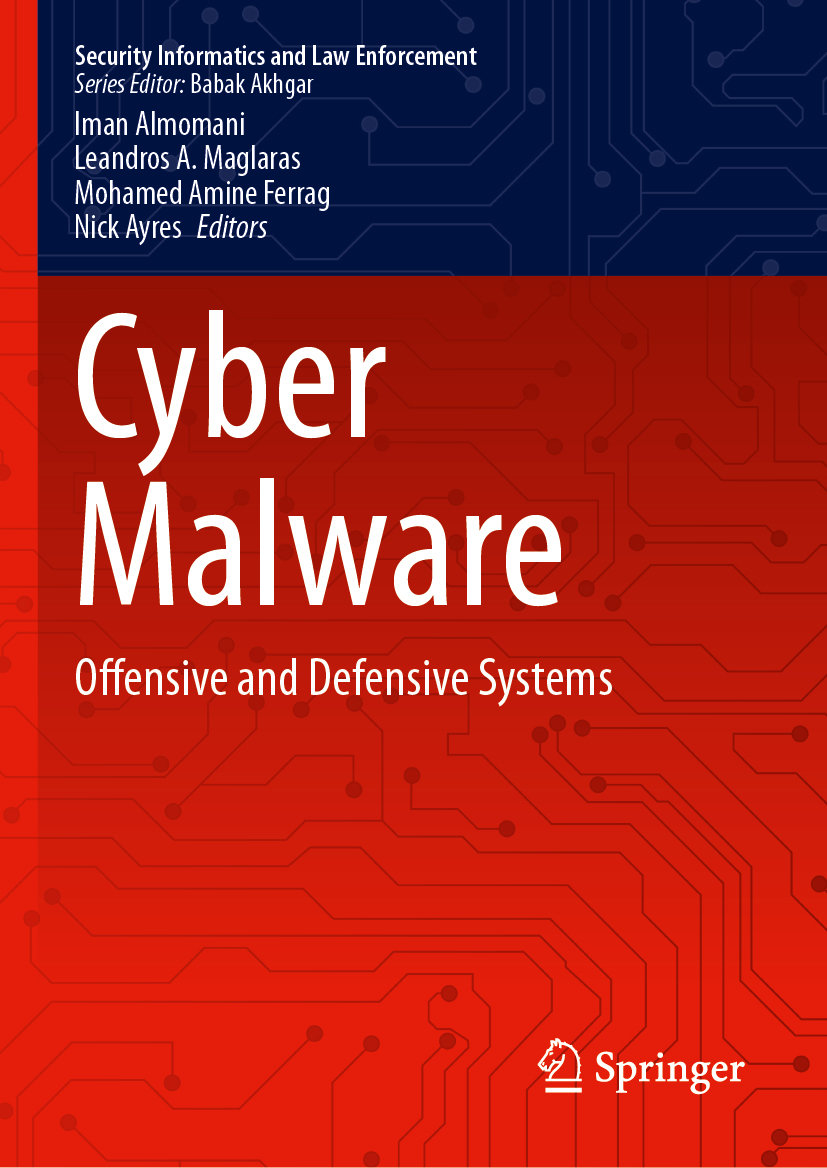Dr. Iman Almomani received the bachelor´s degree from United Arab Emirates, in 2000, the master´s degree in computer science from Jordan, in 2002, and the Ph.D. degree in wireless network security from De Montfort University, U.K., in 2007. She is currently an Associate Professor in cybersecurity. She is also the Associate Director of the Research and Initiatives Centre (RIC) & the Innovation Center (IC) and also the Leader of the Security Engineering Laboratory (SEL) at Prince Sultan University (PSU), Riyadh, Saudi Arabia. Before Joining Prince Sultan University, she has worked as an Associate Professor and the Head of the Computer Science Department, The University of Jordan, Jordan. Her research interests include wireless networks and security, mainly wireless mobile ad hoc networks (WMANETs), wireless sensor networks (WSNs), multimedia networking (VoIP), and Internet of Things (IoT) security. She is also interested in in mobile operating systems security, including Android security. Iman has a wide experience in terms of applied research and product development in the area of cybersecurity maturity models and Assessment and Compliance Tools. She has several publications in the above areas in a number of reputable international and local journals and conferences. She is also a Senior Member of IEEE WIE. She is on the organizing and technical committees of a number of local and international conferences. She also serves as a reviewer and a member of the editorial board for a number of international journals.
Dr. Leandros A. Maglaras is a professor of cybersecurity in the School of Computing at Edinburgh Napier University. From September 2017 to November 2019, he was the Director of the National Cyber Security Authority of Greece. He obtained a B.Sc. (M.Sc. equivalent) in Electrical and Computer Engineering from the Aristotle University of Thessaloniki, Greece in 1998, M.Sc. in Industrial Production and Management from the University of Thessaly in 2004,and M.Sc. and Ph.D. degrees in Electrical & Computer Engineering from the University of Thessaly, in 2008 and 2014 respectively. In 2018 he was awarded a Ph.D. in Intrusion Detection in SCADA systems from the University of Huddersfield He is featured in Stanford University's list of the world´s Top 2% scientists. He is a Senior Member of the Institute of Electrical & Electronics Engineers (IEEE) and is an author of more than 200 papers in scientific magazines and conferences
Dr. Mohamed Amine Ferrag received the Bachelor´s, Master´s, Ph.D., and Habilitation degrees in computer science from Badji Mokhtar-Annaba University, Annaba, Algeria, in June, 2008, June, 2010, June, 2014, and April, 2019, respectively. From 2014 to 2022, he was an Associate Professor with the Department of Computer Science, Guelma University, Algeria. From 2019 to 2022, he was a Visiting Senior Researcher with the NAU-Lincoln Joint Research Center of Intelligent Engineering, Nanjing Agricultural University, China. Since 2022, he has been the Led Researcher with Artificial Intelligence & Digital Science Research Center, Technology Innovation Institute, Abu Dhabi, United Arab Emirates. His research interests include wireless network security, network coding security, applied cryptography, blockchain technology, and AI for cyber security. He has published over 100 papers in international journals and conferences in the above areas. He has been conducting several research projects with international collaborations on these topics. He was a recipient of the 2021 IEEE TEM Best Paper Award as well as the 2022 Scopus Algeria Award. He is featured in Stanford University´s list of the world´s Top 2% scientists for the years 2020, 2021, and 2022. He is a Senior Member of the Institute of Electrical & Electronic Engineers (IEEE) and a member of the Association for Computing Machinery (ACM).
Dr. Nick Ayres received the Bachelor's degree (July, 1996) in Engineering Information Technology, Master's degree (June, 2013) in Cyber Security, Ph.D. degree (March, 2021) in Computer Science from De Montfort University, United Kingdom. He is a lecturer in Cyber Security specializing in incident response, social engineering and cyberterrorism. His current research interests include over the air automotive software updates and the impact of risk compensation. He has authored a number of publications concerning cyberterrorism as well as other topics including susceptibility to phishing utilizing fuzzy logic as well as several publications regarding automotive technology.



